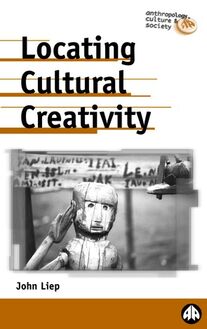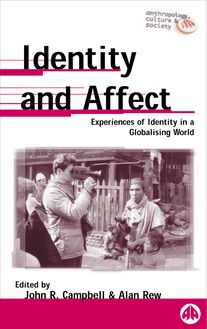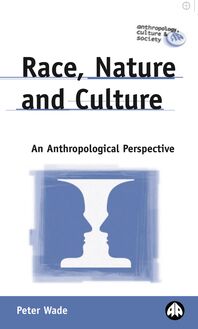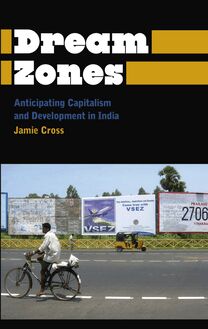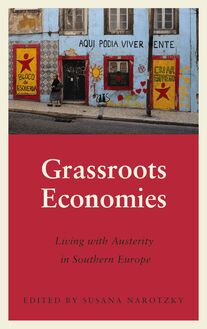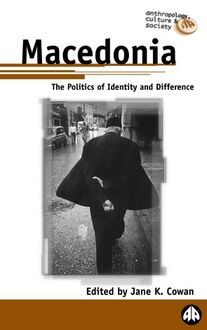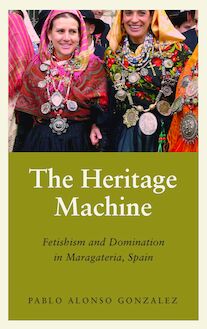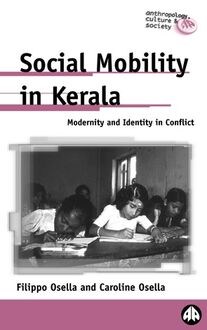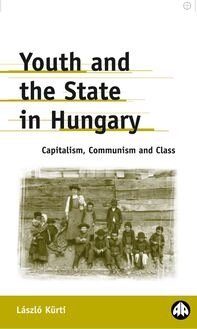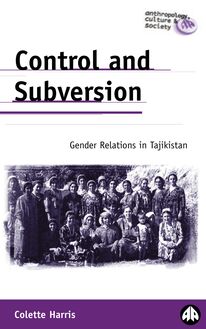Cultivating Development , livre ebook
234
pages
English
Ebooks
2004
Vous pourrez modifier la taille du texte de cet ouvrage
Obtenez un accès à la bibliothèque pour le consulter en ligne En savoir plus
Découvre YouScribe en t'inscrivant gratuitement
Découvre YouScribe en t'inscrivant gratuitement
234
pages
English
Ebooks
2004
Vous pourrez modifier la taille du texte de cet ouvrage
Obtenez un accès à la bibliothèque pour le consulter en ligne En savoir plus
Publié par
Date de parution
20 novembre 2004
Nombre de lectures
2
EAN13
9781783713646
Langue
English
By focusing in detail on the unfolding activities of a development project in western India over more than ten years, as it falls under different policy regimes, this book takes a close look at the relationship between policy and practice in development. David Mosse shows how the actions of development workers are shaped by the exigencies of organisations and the need to maintain relationships rather than by policy; but also that development actors work hardest of all to maintain coherent representations of their actions as instances of authorised policy. Raising unfamiliar questions, Mosse provides a rare self-critical reflection on practice, while refusing to endorse current post-modern dismissal of development.
Acknowledgements
Glossary and abbreviations
1. Introduction: The Ethnography of Policy and Practice
2. Framing a Participatory Development Project
3. Tribal Livelihoods and the Development Frontier
4. The Goddess and the PRA: Local Knowledge and Planning
5. Implementation: Regime and Relationships
6. Consultant Knowledge
7. The Social Production of Development Success
8. Aid Policy and Project Failure
9. Aspirations for Development
10. Conclusions and Implications
Bibliography
Index
Publié par
Date de parution
20 novembre 2004
Nombre de lectures
2
EAN13
9781783713646
Langue
English
Cultivating Development
Anthropology, Culture and Society
Series Editors: Professor Vered Amit, Concordia University and Dr Jon P. Mitchell, University of Sussex
Published titles include:
Home Spaces, Street Styles: Contesting Power and Identity in a South African City L ESLIE J. B ANK
On the Game: Women and Sex Work S OPHIE D AY
Slave of Allah: Zacarias Moussaoui vs the USA K ATHERINE C. D ONAHUE
A World of Insecurity: Anthropological Perspectives on Human Security E DITED BY T HOMAS E RIKSEN , E LLEN B AL AND O SCAR S ALEMINK
A History of Anthropology T HOMAS H YLLAND E RIKSEN AND F INN S IVERT N IELSEN
Ethnicity and Nationalism: Anthropological Perspectives Third Edition T HOMAS H YLLAND E RIKSEN
Globalisation: Studies in Anthropology E DITED BY T HOMAS H YLLAND E RIKSEN
What is Anthropology? T HOMAS H YLLAND E RIKSEN
Anthropology, Development and the Post-Modern Challenge K ATY G ARDNER AND D AVID L EWIS
Corruption: Anthropological Perspectives E DITED BY D IETER H ALLER AND C RIS S HORE
Anthropology’s World Life in a Twenty-First Century Discipline U LF H ANNERZ
Culture and Well-Being: Anthropological Approaches to Freedom and Political Ethics E DITED BY A LBERTO C ORSÍN J IMÉNEZ
Cultures of Fear: A Critical Reader E DITED BY U LI L INKE AND D ANIELLE T AANA S MITH
Fair Trade and a Global Commodity: Coffee in Costa Rica P ETER L UETCHFORD
The Will of the Many: How the Alterglobalisation Movement is Changing the Face of Democracy M ARIANNE M AECKELBERGH
The Aid Effect: Giving and Governing in International Development E DITED BY D AVID M OSSE AND D AVID L EWIS
Cultivating Development: An Ethnography of Aid Policy and Practice D AVID M OSSE
Anthropology, Art and Cultural Production M ARUŠKA S VAŠEK
Race and Ethnicity in Latin America Second edition P ETER W ADE
Race and Sex in Latin America Peter Wade
Anthropology at the Dawn of the Cold War: The Influence of Foundations, McCarthyism and the CIA E DITED BY D USTIN M. W AX
Learning Politics from Sivaram: The Life and Death of a Revolutionary Tamil Journalist in Sri Lanka M ARK P. W HITAKER
Cultivating Development
An Ethnography of Aid Policy and Practice
David Mosse
First published 2005 by Pluto Press
345 Archway Road, London N6 5AA and
175 Fifth Avenue, New York, NY 10010
www.plutobooks.com
Distributed in the United States of America exclusively by
Palgrave Macmillan, a division of St. Martin’s Press LLC,
175 Fifth Avenue, New York, NY 10010
Copyright © David Mosse 2005
The right of David Mosse to be identified as the author of this work has been asserted by him in accordance with the Copyright, Designs and Patents Act 1988
British Library Cataloguing in Publication Data
A catalogue record for this book is available from the British Library
ISBN 978–0–7453–1799–1 Hardback ISBN 978–0–7453–1798–4 Paperback ISBN 978–1–8496–4123–4 PDF eBook ISBN 978–1–7837–1365–3 Kindle eBook ISBN 978–1–7837–1364–6 EPUB eBook
Library of Congress Cataloging in Publication Data
Mosse, David.
Cultivating development : an ethnography of aid policy and practice / David Mosse.
p. cm. – (Anthropology, culture, and society)
Includes bibliographical references and index.
ISBN 0–7453–1799–5 (hbk) –– ISBN 0–7453–1798–7 (pbk)
1. Rural development–Sociological aspects. 2. Economic development–Sociological aspects. 3. Economic assistance–Social aspects.
4. Economic assistance–Political aspects. 5. Rural development projects–India–Case studies. 6. Economic assistance, British–India–Case studies. I. Title. II. Series.
HN49.C6M67 2004
307.1'412–dc22
2004004512
This book is printed on paper suitable for recycling and made from fully managed and sustained forest sources. Logging, pulping and manufacturing processes are expected to conform to the environmental standards of the country of origin.
10 9 8 7 6
Designed and produced for Pluto Press by
Chase Publishing Services, Sidmouth, England
Typeset from disk by Stanford DTP Services, Northampton, England Simultaneously printed digitally by CPI Antony Rowe in England, UK and by Edwards Bros in the United States of America
For Siobhan
Contents
Preface
Abbreviations and Acronyms
Glossary
1.
Introduction: The Ethnography of Policy and Practice
2.
Framing a Participatory Development Project
3.
Tribal Livelihoods and the Development Frontier
4.
The Goddess and the PRA: Local Knowledge and Planning
5.
Implementation: Regime and Relationships
6.
Consultant Knowledge
7.
The Social Production of Development Success
8.
Aid Policy and Project Failure
9.
Aspirations for Development
10.
Conclusions and Implications
Notes
Bibliography
Index
Preface
During the 1990s I worked as an anthropologist-consultant on a British aid project in rural India. From the first design of the IBRFP project in 1990 until 1998 I was a regular visitor as the project’s expatriate ‘expert’ in social development, participation or local institutions (I also undertook separate assignments in 2001–3). In the highly fragmented world of development consultancy such continuity is rare. Partly for this reason, but also because of the particular importance of this project as a ‘flagship’ within the 1990s British aid programme – demonstrating a new commitment to participatory and poverty-focused interventions – DFID (the UK Department for International Development) agreed to support an analysis of the project experience from my particular anthropological perspective. For me, this was a chance to reflect on what had been a rich, challenging and frustrating experience, through which I learned much about bilateral aid, participation, project management and the livelihoods of very poor ‘tribal’ communities in a politically and administratively marginal region of India.
This book is the result of that reflection, now placed in the wider context of international aid. Its focus is on the period of my direct and regular involvement (1990–97) during the project’s Phase I (although I also draw on materials for the years up to 2001). I would visit the project for several weeks three or four times a year (more in the earlier, and less in the later years) along with my consultant colleagues – specialists in forestry, crops, irrigation, soil conservation or gender – spending time with project staff, in office meetings or workshops, at their homes, on long journeys and in the scattered villages of the Bhil (‘tribal’) region undertaking planning or reviews with farmers. These were intense periods of interaction from which grew personal relationships of understanding, trust and respect. This is the first source for my research. The second is a series of reports and studies that came out of my various engagements in planning, monitoring, social research and impact studies. These are part of a larger body of project documentation (for 1990–98) that I have reviewed for this book, including village-level records, project monitoring data, meeting minutes, workshop reports, consultant and donor documents, the published results of technical research and impact assessment studies, and more. As a third layer of research, in 2001 I returned to India to carry out a series of interviews (including over 30 taped) with a representative selection of project workers and ex-staff at different levels, as well as with India- and UK-based DFID officials and consultants. The aim was to test and verify my understanding of project processes, to decentre my own view and to extend the analysis to the wider context of British aid in India.
This has been an unusual type of social research; complex, long-term, multi-sited and initially unintentional, drawing on insights as a participant-insider. It is both social investigation and lived experience. It is based on the best available evidence, but does not cease to be a personal analytical account – an ethnography in which I am myself the principal informant.
There is a fourth and important methodological level. This concerns the response that the analysis received from those who shared the experience and about whom I write. Such ethnography courts controversy and is likely to produce objections. These are themselves part of research which emerges from, and reflects on, relationships in development. And here I concur with Bruno Latour’s (2000) view of ‘objectivity’, which derives not from standing above the fray or suppressing subjectivity, but from maximising the capacity of actors to object to what is said about them (see Chapter 1 ).
So I shared my writing with ‘informants’, collaborators, colleagues and friends who possessed a capacity to object. Most who responded to the drafts in fact gave strong endorsement to my analysis, often amplifying it in their commentary. They said that the book was ‘a truthful introspection’, ‘very insightful’, ‘a balanced feedback’, even ‘over-cautious’ some thought. ‘This is my experience you have written’, said one, ‘on all points we are at par.’ But a number of key actors (those in managerial positions) took strong exception to my account saying that it had ‘many incorrect statements’, was ‘too negative and unbalanced’, ‘unfair and disrespectful’, ‘out of date’ and even ‘damning of all our work’. They disagreed fundamentally with my conclusions and considered that many sections of the book needed to be re-written. Such a reaction should disturb any ethnographer. I held to the truthfulness of my analysis, but offered to record alternative points of view in a postscript. My refusal to suspend publication, to consider revising my analysis in substance and to meet the concerned group with that objective, provoked written complaints to my academic managers, my university’s research ethics committee, the Chair of my anthropological association (the ASA) and my publisher, stating that the book provided an ‘unbalanced and damaging account of the projec
